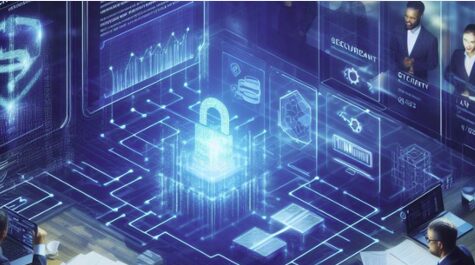Blockchain technology is revolutionizing various industries, and the legal sector is no exception. One of its most innovative applications is in the realm of video contracts, offering a new level of transparency and trust that traditional contracts often lack. This technology is proving to be a game-changer, streamlining processes and enhancing security in legal contracts.
Understanding Video Contracts on Blockchain
Video contracts, which use blockchain as their foundation, represent a modern evolution in digital contract management. These contracts incorporate video recordings to enhance clarity and understanding between parties while leveraging the blockchain’s inherent strengths, such as immutability and transparency. When combined with blockchain, video contracts not only document terms visually but also ensure that these agreements remain tamper-proof.

The immutability of contracts is a core feature of blockchain. Once a video contract is recorded and stored on a blockchain, it cannot be altered. This prevents disputes arising from unauthorized modifications, ensuring the authenticity of contracts over time.
Why Transparency and Trust Matter
Traditional legal contracts often suffer from ambiguities, misunderstandings, or even fraud. By incorporating blockchain, transparency in contracts is achieved through an open ledger system. All stakeholders can view the contract’s history and terms without interference, fostering trust.
Moreover, the use of smart contracts automates the execution of contractual terms based on predefined triggers. This automation eliminates the need for intermediaries, reduces costs, and ensures that contract terms are fulfilled accurately and promptly.
Key Benefits of Blockchain-Based Video Contracts
- Enhanced Security in Legal Contracts
Blockchain technology ensures that video contracts are encrypted and securely stored. Unauthorized access is virtually impossible, making these contracts highly reliable for sensitive transactions. - Improved Transparency and Immutability
Blockchain’s decentralized ledger guarantees that all actions related to the contract are recorded and time-stamped. This ensures complete contract execution on blockchain without discrepancies. - Simplified Dispute Resolution
Since the terms and execution of video contracts are permanently recorded, resolving disputes becomes straightforward. The authenticity of contracts can be easily verified by referencing the blockchain. - Adaptability for Modern Legal Solutions
Personalized video contracts can cater to various industries, including real estate, entertainment, and business partnerships. This adaptability positions blockchain as a cornerstone for innovation in contracts.
Applications of Blockchain-Based Video Contracts
Digital contract platforms powered by blockchain are already transforming industries. In real estate, for example, video contracts provide buyers and sellers with clear, immutable terms. For creative industries, such as entertainment, personalized video contracts protect intellectual property and streamline royalty payments.
Blockchain’s role in the legal sector is expanding. Companies are exploring how contracts on blockchain can redefine traditional legal processes, offering secure, transparent, and efficient solutions.
The Role of Blockchain in the Legal Sector
Blockchain has firmly established itself as a tool for modern legal solutions. It bridges the gap between traditional contracts and the digital future, addressing longstanding challenges such as fraud, inefficiency, and lack of trust.
The use of blockchain in the legal sector is particularly advantageous for cross-border agreements. International contracts often face delays and complications due to differing legal systems. Blockchain eliminates these barriers by providing a universally recognized and tamper-proof platform for agreements.

The Future of Contracts: Blockchain and Beyond
The integration of blockchain with video contracts is just the beginning. As technology evolves, we can expect even more sophisticated digital contract platforms that offer advanced features like AI-driven analysis and real-time monitoring. These innovations will further enhance the authenticity of contracts and reduce administrative overhead.
Moreover, as regulatory frameworks around blockchain solidify, its adoption in the legal sector will accelerate. Governments and organizations alike are recognizing the potential of smart contracts to reduce bureaucracy and improve efficiency.
Conclusion
Blockchain-based video contracts represent a significant leap forward in the legal world. By combining the clarity of video documentation with the immutability of contracts on blockchain, this innovative approach addresses the need for transparency and trust in modern agreements.
From personalized video contracts to fully automated contract execution on blockchain, the possibilities are vast. Businesses, legal professionals, and consumers alike stand to benefit from this innovation in contracts, which promises to redefine how we think about agreements in the digital age.



